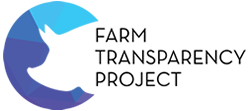News & Media: Australian group sparks uproar after publishing controversial new world map
Australian group sparks uproar after publishing controversial new world map
A controversial new world map has been released by an Australian team to reveal the locations of large farms and slaughterhouses. On Tuesday, activists from Farm Transparency Project published the data of 76,000 farms, saying they want to give consumers knowledge about where the majority of their meat is sourced from.
Its founder, Chris Delforce, accused large-scale industrial farms of operating in secrecy inside sheds, saying many are "desperately trying to keep hidden" the way they treat animals.
"It's a lot easier now for people to see what's around them and understand the supply chain... and to be able to see what these places look like," he told Yahoo News.
The move has angered the National Farmers Federation, which called the map "an invasion of privacy". Its president, David Jochinke, accused the group of "picking on" farmers who are conducting a legitimate business and said it is "a step too far".
"We've got absolute disdain and frustration that they believe this is a fair way to treat people in agriculture, and there are legitimate processes if they have concerns to go to the authorities," he told Yahoo News.
Today, much of the world's beef cattle is kept in feedlots prior to slaughter. Source: Getty
Original 2019 farm map caused uproar in Australia
In 2019, Farm Transparency Project created its first map, which only included the locations of Australian businesses.
Responding at the time to having his home address published, egg farmer Bede Bourke said it left him frightened. "What it did was take away the privacy of our family operation," he said.
The new map isn't just restricted to farms and slaughterhouses - it also includes the locations of popular zoos and aquariums, horse racing venues, research institutes, and other facilities Farm Transparency Project associates with animal exploitation.
Most pigs in developed or developing nations are now raised in large sheds, making it hard for consumers to see how the animals they eat are raised. Source: Getty
Along with pins noting the precise locations, many are accompanied by aerial pictures to highlight their size. Thousands of cattle can be seen standing in bare paddocks in some images, others simply show the large sheds where animals are kept.
Delforce is a veteran vegan advocate who has exposed multiple animal welfare breaches on farms.
But it's not just illegal activity that he advocates against. He argues that many of the legally acceptable farming methods allow animals to be kept in tight spaces where they're unable to express natural behaviours or form social hierarchies.
"The industry tries to paint itself as mum and dad farmers, running small hobby farms feeding the nation, but you look at these places and they're just massive expanses of shed after shed," he said.
Consumers disconnected from where their food comes from
As farms have become larger, it's become increasingly difficult for consumers to know where their food comes from. While grass-fed cattle and sheep can be seen from the roadside, those raised in feedlots are out of view, and there are strict regulations to keep sightseers away, because they could carry disease and pose a biosecurity threat.
Most chickens and pigs are raised in sheds, and so unless you own or work on a farm, it's unlikely you'll ever see the animals that provided their meat for your burger or breakfast.
Talking to Yahoo from his farm, Jochinke agreed that consumers have a "disconnect" from a lot of the products they consume. He said there's a similar issue with many aspects of life, including how mobile phones or cars are produced.
"For every item you put in your shopping basket, just like every choice in life, yes it is a challenge," he said. But he believes that regulations and legislation help ensure most farmers keep to high standards.
Love Australia's weird and wonderful environment? 🐊🦘😳 Get our new newsletter showcasing the week's best stories.


